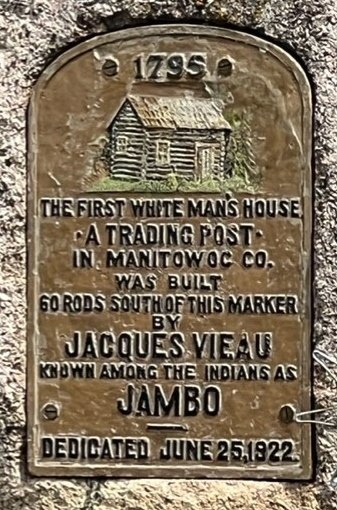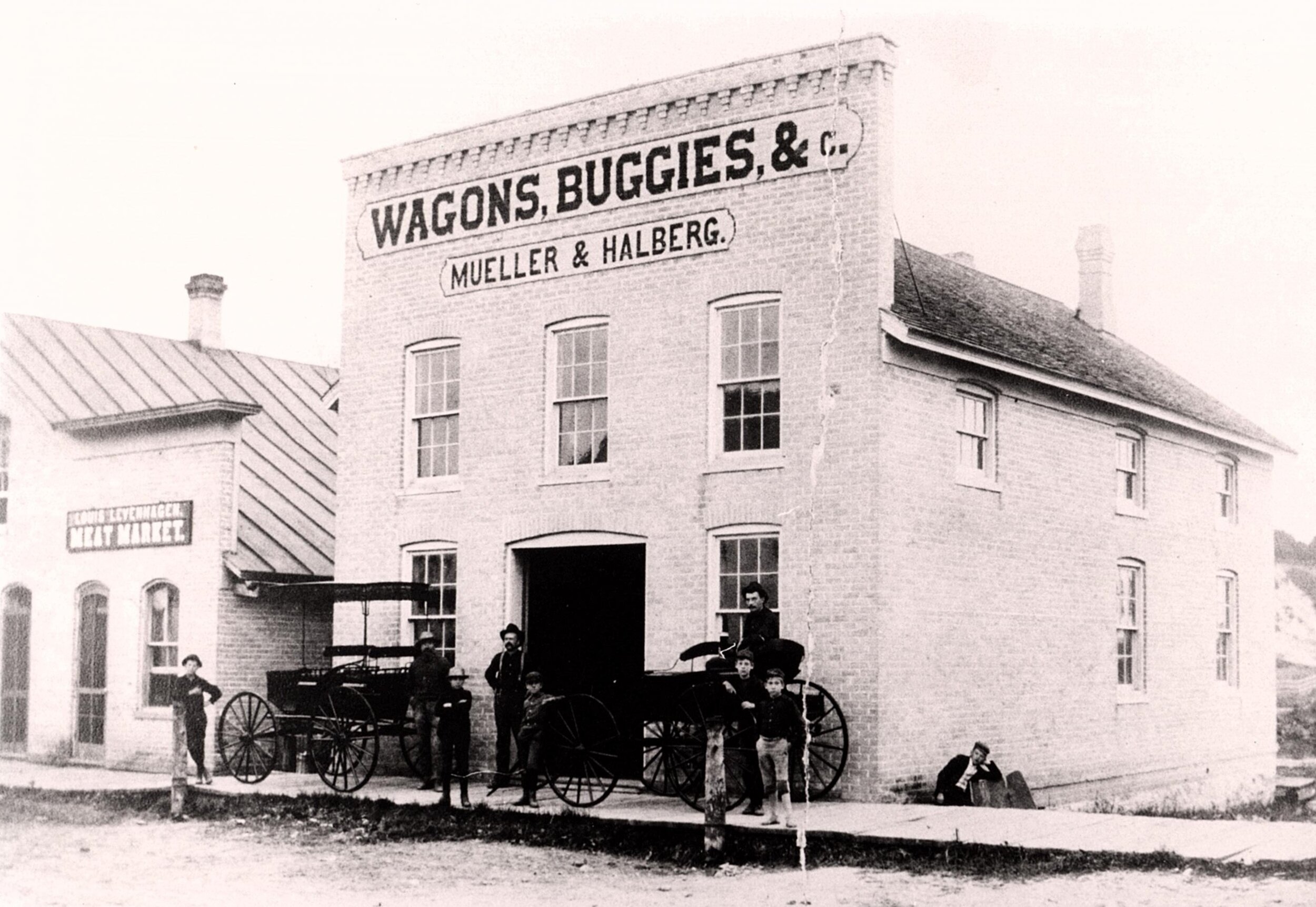Preserving the Past:
Stories from the Archives Blog
Electric Streetcars Operated in Manitowoc and Two Rivers from 1902-1927
In April 1902, two small city streetcars were unloaded at the C&NW depot in Manitowoc. In appearance, the cars (29 feet–4 inches long with 28 seats) were “handsome in design,” painted “a pretty red color” and numbered “3” and “4.” Other city streetcars and larger interurban cars (42 feet–4 inches long with 44 seats) for the Two Rivers run arrived later.
Lillian Chloupek: Leader in Eduation
In Chloupek’s first year as Superintendent in 1920, Manitowoc County had 110 school districts and 142 teachers. The total enrollment of all schools, both public and private, was 4,161 students. Most schools had enrollments of 25 to 35 students, while 2 had over 56 children in attendance. She was reelected for another 2 terms as County Superintendent.
Surprise Reveals Unique Mishicot Photos
In May of 2021, a surprise package of photos arrived at the Mishicot Historical Museum. Upon closer inspection, the photos are believed to be the best collection of early (turn of the twentieth century) Mishicot photos found so far. The photos may have been lost if not for Laurel G. Brandt, 78, of Sparta WI who discovered his grandpa’s scrapbook and donated it to the museum.
Kettle Range Rural School Soon To Be Razed
Local residents should take some comfort knowing the old school served generations of rural children well. An old large black maple tree, possibly planted when the brick school was built, remains in the school yard. If only it could tell us all the stories of when the children sat and played beneath its spreading branches in the cool shade.
Jacques Vieau's Trading Post Monument Dedicated in 1922
Vieau (called Jean Beau or Zhambo by the Indians) was an agent for the Northwest Fur Company. The Jambo Creek post was one of several outposts established by the French Canadian trader along the western shore of Lake Michigan in 1795. Others were located at Kewaunee, Manitowoc Rapids, Sheboygan and Milwaukee, which became his headquarters.
School Christmas programs
It was the custom to have several plays, a half-dozen songs and a number of recitations, depending on the number of students in each of the eight grades. The success of the program either raised or lowered the social status of the teacher – even more than her performance in the classroom.
Chief Mishicott: Potawatomi Leader
In 1847, Daniel Smith, a lumberman from New York State, plotted a small village around his dam and mill, seven miles north of Two Rivers, naming it for his friend Old Chief Mishicott. The Potawatomi leader is also the namesake of the Town of Mishicot, organized in 1852, and the Mishicott River (now called the East Twin) in Manitowoc County.
Federal Agents Raid Mishicot Distillery in 1929
Soon after arriving, the agents became aware that the task of destroying the plant and equipment, estimated to be worth $100,000 or more, was beyond them and called for reinforcements, another carload of operatives arriving during the night. The following day the distillery was dismantled, all of the metal being purchased by a Two Rivers dealer in scrap metal.
Fire at Mishicott Destroyed 13 Buildings in 1883
On Sunday evening, October 7, 1883, news reached Manitowoc that a destructive fire had raged that afternoon in Mishicott, and that the western end of the downtown on both sides of Water Street (now E. Main) had been wiped out. The fire started in the smokehouse of Louis Levenhagen, who was rendering lard at his butcher shop.
Village of Mishicot, Historical Overview
The village of Mishicot, located 12 miles northwest of Manitowoc, started out as a small settlement near the East Twin River. A walk through town reveals a pleasant mixture of old and new as historic buildings have been renewed to fit the needs of today’s ever-growing society.
1951 Two Rivers Christmas Parade
Can you picture a 400-foot balloon train parading down Washington Street in Two Rivers? That’s exactly what occurred during the 1951 holiday parade held on November 21.













